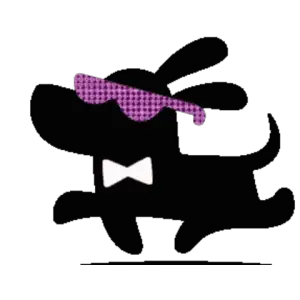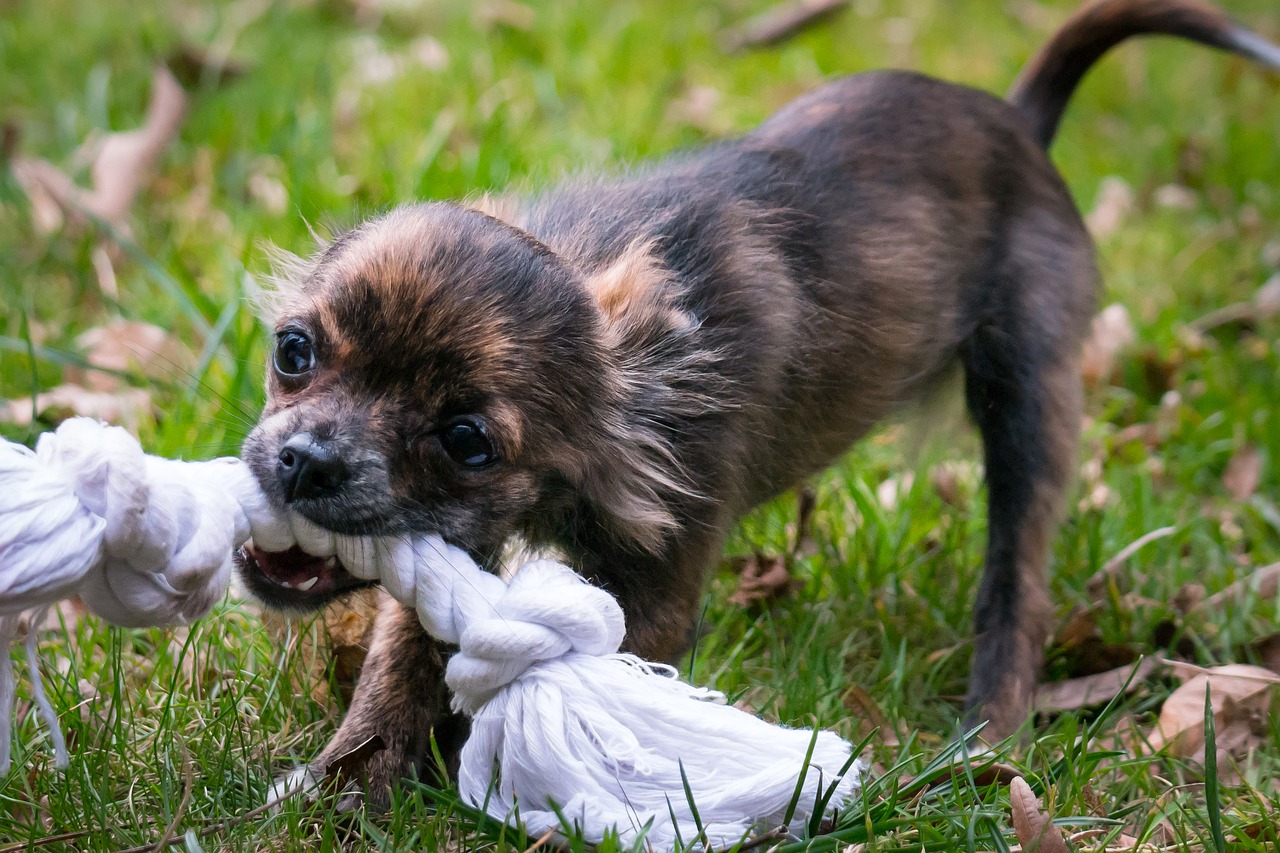Have you ever had a puppy who bites a lot and you didn’t know what to do? Puppy biting can be a common problem. However, you need to learn how to train your puppy not to bite through following certain steps and tips.
Table of Contents
Why do puppies bite?
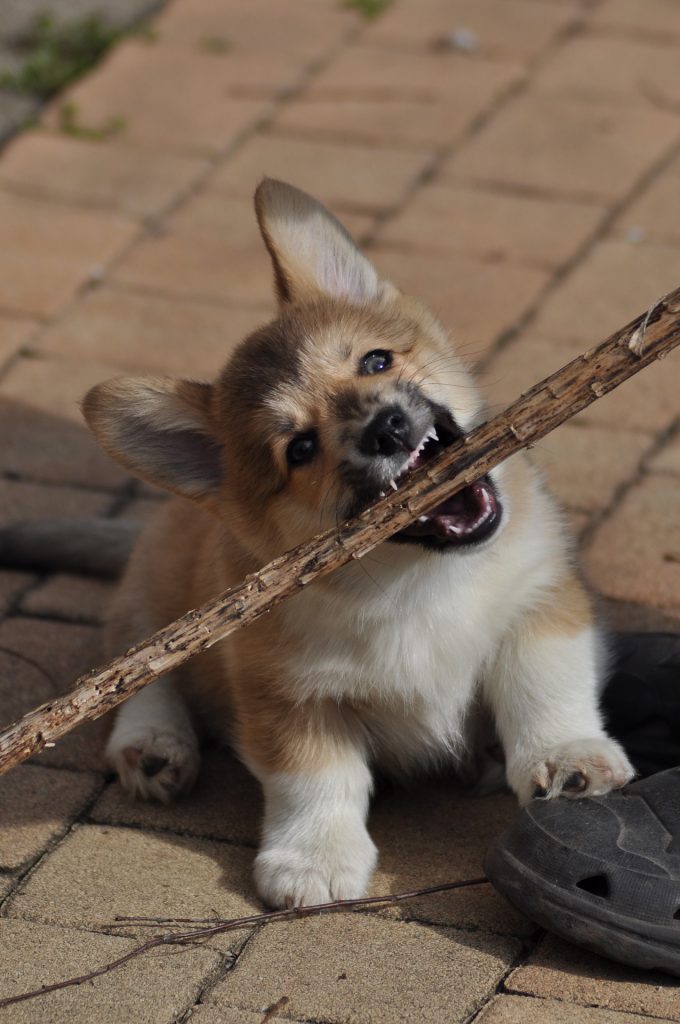
As puppies begin to teeth, they begin to bite and chew on objects and things. This behavior happens because their teeth are coming out so they naturally chew on things.
Also, it is a common form of socialization or social play in which puppies do to engage with other puppies and are not meant to be aggressive or cause harm.
When do puppies stop biting so much?
Puppies start teething at a very early age. However, they will stop biting when they are 7 months old where they have a full adult set of teeth. There are also some exceptions where they continue biting.
Steps on how to train your puppy Not to bite
1.) Redirect your puppy to another object
When your puppy wants to bite you or bite something, use the redirection method. In the redirection method, you redirect your dog’s attention in biting to another object.
For example, when your puppy bites you, give them a toy instead so their attention is redirected the other way. You can also move around and make noises so that you make the toy more excitable.
If your puppy won’t take the toy, then ignore them.
2.) Teach your puppy bite inhibition
When puppies are small, they naturally bite other puppies as a way of playing with each other. Puppies who are bitten often make a yelp sound as a way to communicate that this behavior hurt them. This happens when the bite hurts them so much.
You can also teach your puppy to not bite you through making a sound such as “ouch” when your dog bites you.
By doing so, your puppy will learn that it hurted you and will stop. Make sure to give your puppy lots of praise and treats for backing off.
3.) Teach your puppy that biting means no playtime
If your puppy bites you during playtime, you got to teach them that biting is a no no through calmingly ignoring them and not giving them attention. Also, play time has to stop.
Also, don’t punish or yell at your puppy. Any yelling or punishment of your puppy will translate to them as a reward because they are getting a response from you. It will be a type of negative reinforcement.
4.) Socialize your puppy
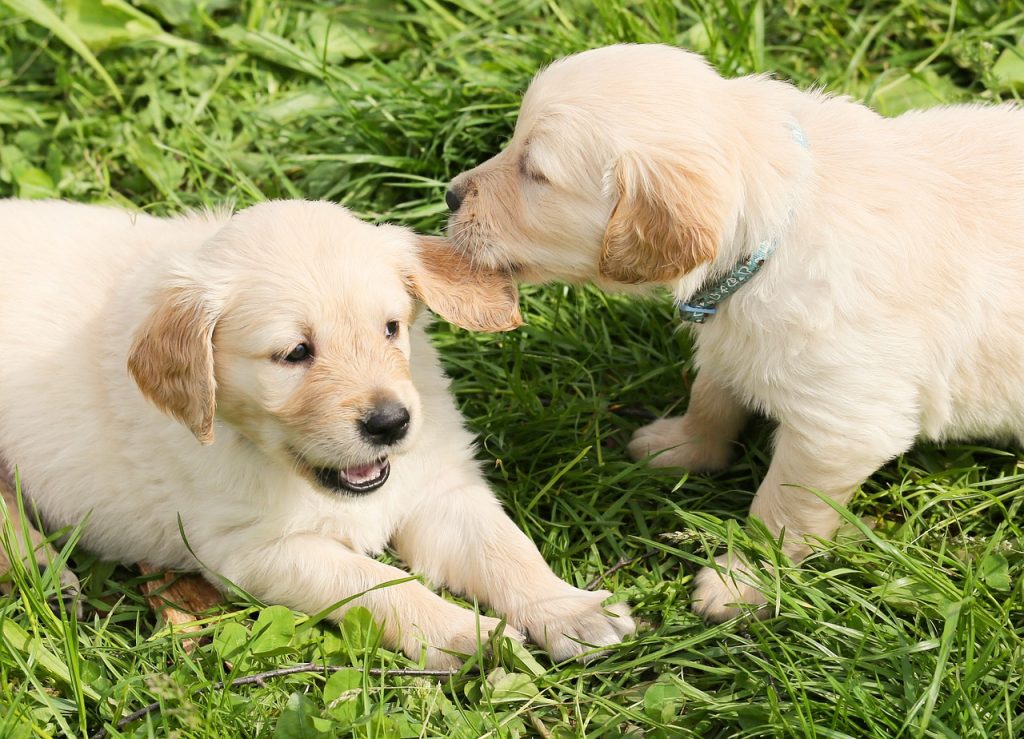
If you’ve got a puppy, teach them to socialize by introducing them to different places, people, and situations. You’ve got to make these experiences positive and make them happy as possible.
A puppy that is well socialized becomes more likely to become calm and positive so they don’t become fearful or aggressive toward other dogs and people.
Make your puppy join a socialization class or puppy kindergarten. They will pick up a lot of manners and learn how to reduce their biting.
Puppies will learn when that biting is intolerable and puts an end to play time with other puppies so they will reduce their bite inhibition; they will learn from each other.
There have been studies showing the effect of socialization on puppies. Puppies that receive socialization tend to not have behavioral problems over time.
While those who don’t receive socialization may end up becoming afraid of people and other dogs.
5.) Clicker train your puppy to stop biting
Another step on how to train your puppy not to bite is to use clicker training. In Clicker training, you mark good behaviors that your puppy does. It does so by using the clicker sound as a cue that your puppy has done something good.
The use of the clicker’s sound catches the exact moment your puppy has done a good behavior.
To teach your puppy not to bite with a clicker, place your hand in front of them. Then wait and see how they will react. If they don’t bite, then click and give them lots of praise and treat them.
Start out with little steps and then gradually increase the stimuli. If you are consistent with your puppy, they will learn how to not bite.
6.) Use positive reinforcement
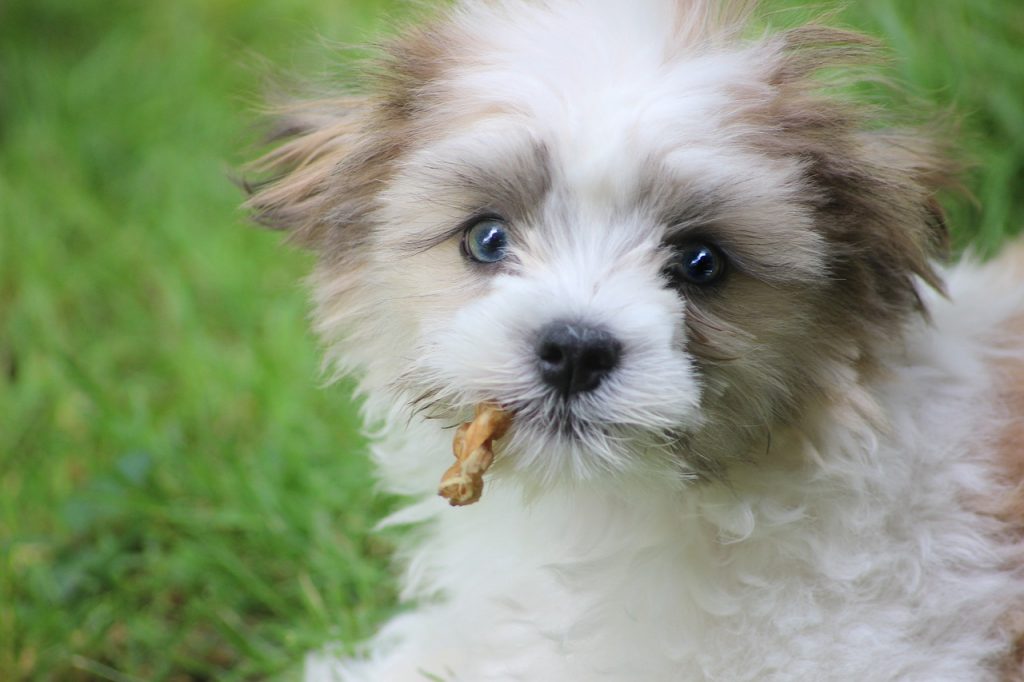
Always use positive reinforcement to reinforce good dog behavior. In positive reinforcement, positive behaviors are rewarded while negative behaviors are not punished.
Positive reinforcement includes anything that your puppy enjoys such as giving them a pet, giving them a treat, giving them lots of praise, or offering them extra play time.
However, punishment is the total opposite; it includes everything that a puppy finds unpleasant such as hitting and yelling.
There have been studies that dogs who were punished were more likely to show aggression than dogs who have been positively reinforced.
Tips on how to train your puppy not to bite
1.) Give your puppy exercise
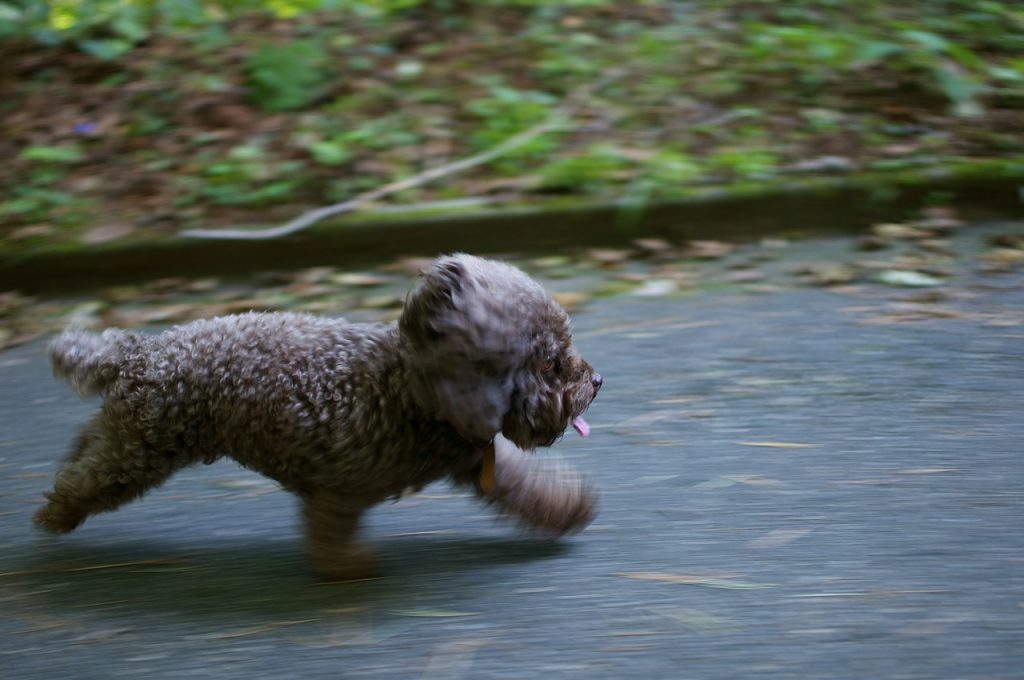
An important tip on how to train your puppy not to bite is to give your puppy exercise. By exercising your puppy, you ensure that your puppy doesn’t bite. This happens because your puppy receives enough mental and physical stimulation.
A puppy’s exercise will depend on their age and breed. As a general rule, a puppy can have 5 minutes of exercise for each month. For example, a 4 month puppy can have exercise for 20 minutes.
2.) Teach your puppy “leave it”
To teach your puppy “leave it”, follow these steps.
1.) Get your puppy’s attention
To get your puppy’s attention, get them to sit and reward them with a treat or two.
2.) Show your puppy the treat
Let your puppy see the treat and close your hand so your puppy doesn’t get the treat. Your puppy will try to get the treat through biting and licking your hand. At these times, you got to be firm and tell them calmly “no”.
3.) Practice
Practice this new habit several times until your puppy learns the concept. Once your puppy learns and understands the concept, introduce the word “leave it” to the situation.
For example, when your puppy diverts their attention from the treat. Tell them right away “leave it”. Follow this behavior with a “good” or “yes” and give them a treat.
3.) Implement timeouts
In these timeouts, you give your puppy a break from what they want. An example would be when your puppy bites. When they bite, they are looking to play with humans.
If your puppy can’t stop biting, then take yourself away from the situation. You can do so by leaving the room or putting them in a different room.
4.) Try a shock method
When using this method, do not apply anything that is harmful rather use the safest options possible.
A bottle of water sprayed on them can stop puppy biting. This happens by giving your puppy a shock that lets them stop biting.
5.) Use firm commands
Use firm commands to train your puppy to not bite. Commands such as “no bite” help stop puppy biting.
However, there are two things to keep in mind. The first is to not scream at your puppy that they become afraid. The second is that to not look at your puppy’s eyes for a long period of time because this will mean confrontation to your puppy.
6.) Stop rough play
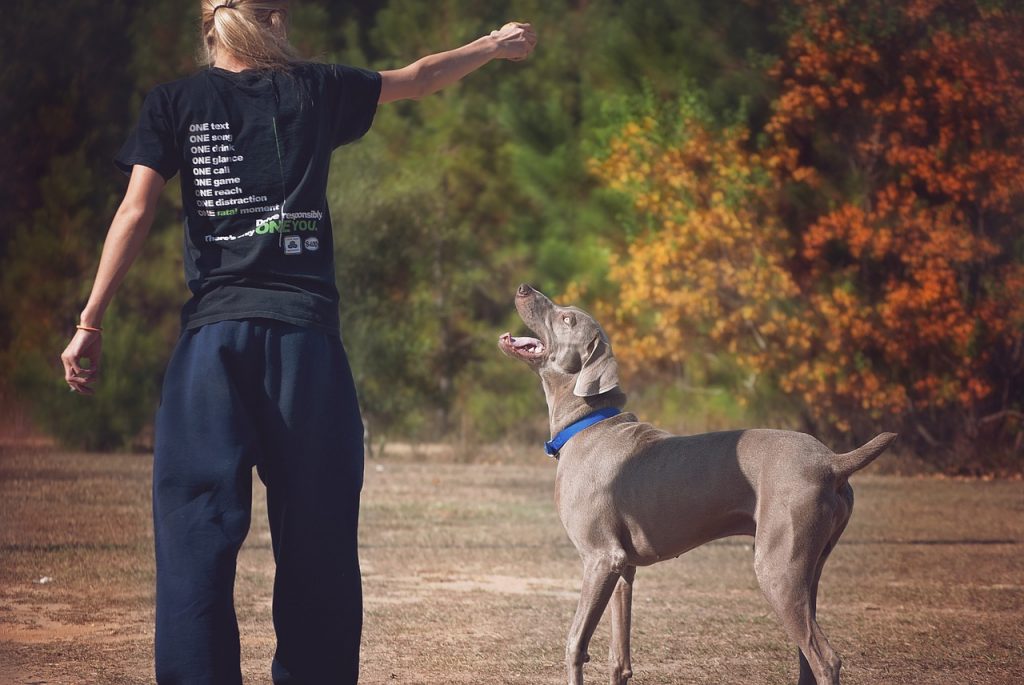
You’ve got to stop all types of rough play such as tug of war and wrestling. By playing these games, you are giving your puppy the idea that playing roughly is okay in which they will use their teeth to playfully bite.
7.) Use discipline
Another tip on how to train your puppy not to bite is to use discipline. Use discipline to stop your puppy from biting. This is done so they wouldn’t bite and would understand that biting isn’t acceptable.
To do so, give your puppy a firm command to stop biting and immediately pull away.
8.) Turn away and walk away
Ignore them when they bite and walk away so they understand biting isn’t acceptable. They will calm down once they haven’t gotten your attention. Make sure that you teach your puppy not to bite.
Conclusion
In conclusion, how to train your puppy not to bite requires to follow certain steps and tips. Puppies start biting at a very young age due to teething; however, they grow out of it with time but there are exceptions who don’t grow out of it.
For more information regarding tips and tricks for puppy training, check Best 17 Tips and Tricks for Puppy Training.
